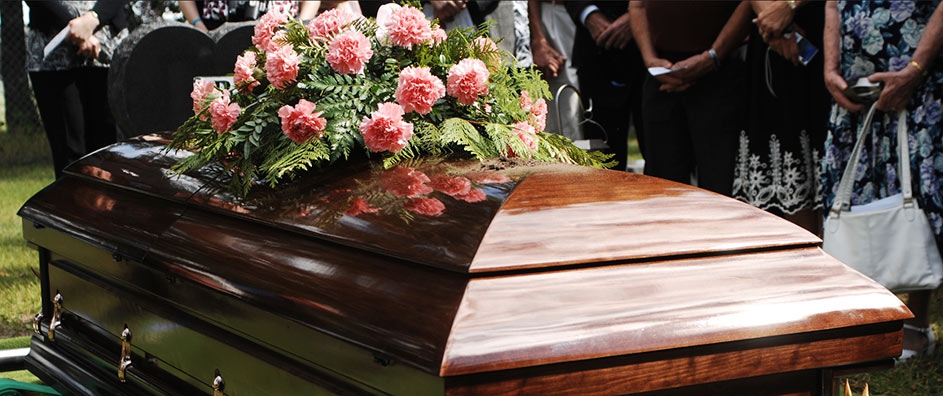The views expressed in our content reflect individual perspectives and do not represent the authoritative views of the Baha'i Faith.
A few years ago I attended the funeral of an extended family member, a vibrant woman I watched grow from an exuberant six year old into an admirable mother with a constant smile and sunny disposition. But suddenly bombarded with a series of crises, including an unexpected, unwelcome divorce with resulting financial challenges, and her mother’s illness, she went into a tailspin. Still, it came as quite a shock to learn that her despair led to suicide.
Despite the circumstances, the service truly celebrated her life, leaving everyone smiling through their tears and feeling better than when they arrived. So many of the things said at the funeral and the subsequent reception ended up being echoed in Have a Little Faith, a book by Mitch Albom that I read after returning home. Coincidence? Either alone would be inspiring, but the combination triggered deep reflection.
Many people spoke, most of whom she had helped when their own problems seemed insurmountable. She’d been their rock, their listening ear, the one who believed in them and nurtured them through their ordeals. The last to offer thoughts and memories was her son. He reminded us that his mother never judged anyone. He was proud that his mother understood that circumstances could cloud people’s judgment, but that they could be gently led back on track. She never harbored ill feelings or resentments and was quick to forgive, he said. He told us she taught her children that even if they were upset with their loved ones, they still should express their love. In fact, he assured us, he is comforted that his last words to his mother had been, “I love you.” In acknowledging the numerous requests of “How can I help you” to him and his sister, he suggested that the best way we could help them would be to live up to his mother’s admonitions and example “Don’t judge. Be forgiving. Be an example.”
In Albom’s book, a priest, upset about a synagogue opening near his church, made a hurtful remark to one of the Jewish congregants. This led to a consultation between himself and the rabbi. Soon after, the priest and the rabbi are seen walking arm and arm around the schoolyard of the religious school. Albom writes, “Some kids blinked. Some kids stared. But all of them took notice.” These clergymen stopped judging. They forgave. They became a living example.
At the funeral I attended, the brother and sister invited their stepfather. At first he wasn’t going to attend, because he feared, “Everyone will hate me.” But they assured him he’d be welcome. He came; his grief was visible and real. Perhaps it came from a sense of guilt, perhaps some sense of loss. His ability to swallow his pride and face his fear, and the family’s acceptance of his presence, however reluctant some may have been, began the healing for all of them.
When I read In Albom’s book a lesson he recalled from his religious education, it resonated with the siblings’ magnanimity:
After the Israelites safely crossed the Red Sea, the Egyptians chased after them and were drowned. God’s angels wanted to celebrate the enemy’s demise. According to the commentary, God saw this and grew angry. He said, in essence: ’Stop celebrating. For those were my children, too.’
Albom and his rabbi discussed the fact that most people’s biggest fear in regard to death is that they might be forgotten—and that would be like a second death. The rabbi reassured him:
In the short run the answer is simple. Family. It is through my family that I hope to live on for a few generations. When they remember me, I live on. When they pray for me, I live on. All the memories we have made, the laughs and the tears.
My relative will not suffer that second death. She will live on through all the special memories she created for all those left behind.
I am comforted by the knowledge that the beautiful soul of that young woman, who gave such sage advice to others but neglected to heed it for herself, will continue to progress. The Baha’i teachings give me that reassurance and comfort:
Now let us consider the soul. We have seen that movement is essential to existence; nothing that has life is without motion. All creation, whether of the mineral, vegetable or animal kingdom, is compelled to obey the law of motion; it must either ascend or descend. But with the human soul, there is no decline. Its only movement is towards perfection; growth and progress alone constitute the motion of the soul.
Divine perfection is infinite, therefore the progress of the soul is also infinite. From the very birth of a human being the soul progresses, the intellect grows and knowledge increases. When the body dies the soul lives on. All the differing degrees of created physical beings are limited, but the soul is limitless!
In all religions the belief exists that the soul survives the death of the body. Intercessions are sent up for the beloved dead, prayers are said for their progress and for the forgiveness of their sins. If the soul perished with the body all this would have no meaning. Further, if it were not possible for the soul to advance towards perfection after it had been released from the body, of what avail are all these loving prayers, of devotion? – Abdu’l-Baha, Paris Talks, p. 89
We can all pray for our friends and family who have preceded us into the next life, and look forward to their prayers when we make that journey.
















Comments
Sign in or create an account
Continue with Googleor